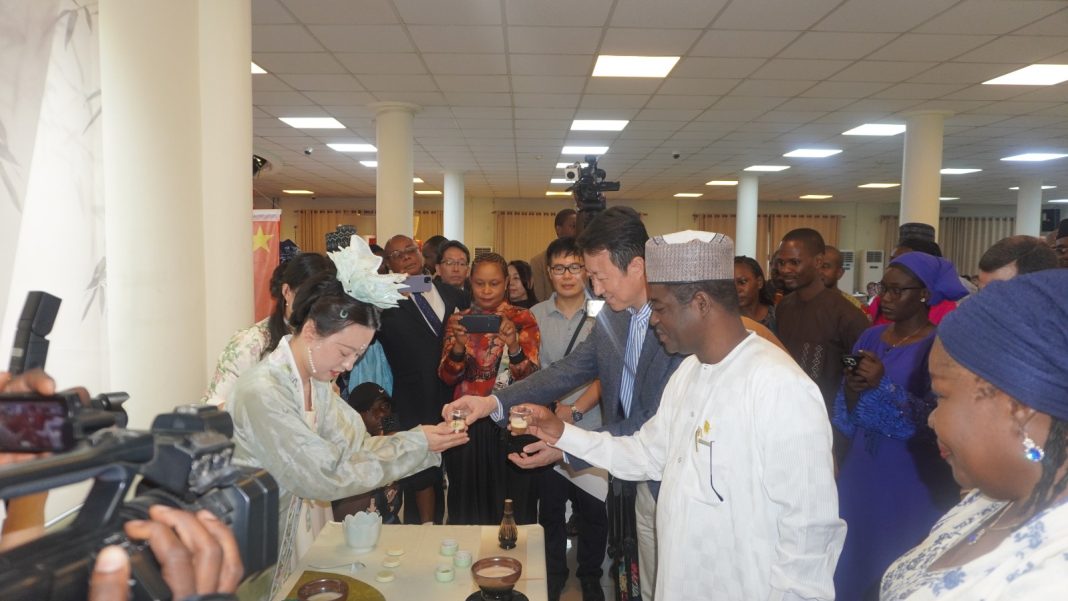The Chinese Embassy in Nigeria on Saturday hosted the 2025 “Tea for Harmony-Yaji Cultural Salon” at the China Cultural Centre in Abuja, as part of an effort to deepen cultural and people-to-people ties between China and Nigeria.
Hosted in collaboration with the Network of International Cultural Entities and the Zhejiang Provincial Department of Culture, Radio, Television, and Tourism, the event was attended by diplomats, government officials, political leaders, and tea enthusiasts.
In his remarks, Chinese Ambassador to Nigeria, Yu Dunhai, said Chinese tea symbolises harmony, tranquillity, and elegance that resonates deeply with Nigeria’s cultural values of unity, serving as a spiritual bridge between the two nations.
The envoy noted that tea has become significant in promoting economic, trade cooperation and cultural exchange between the two countries, and expressed the desire of the Chinese government to partner with Nigeria in growing the tea economy of both nations.
“In recent years, China-Nigeria tea trade has flourished, with Hainan Baisha Tea making its debut in the Nigerian market in 2024, marking a new chapter in our tea industry cooperation,” he added.
Also speaking, Dr Muhktar Mohammed Yawale, Permanent Secretary of the Federal Ministry of Arts, Culture and the Creative Economy, said tea is a global symbol of harmony, respect, and cultural exchange.
“For thousands of years, Chinese tea has embodied the philosophy of harmony, respect, purity and tranquillity. Principles that resonate deeply with Nigeria’s values of communal unity and shared heritage,” he said.
Dr Yawale noted that the ministry is committed to fostering creative enterprises around tea, supporting tea-related festivals, and exploring partnerships that enhance Nigeria’s participation in the global tea economy.
“Economically, Nigeria’s tea market continues to expand, presenting opportunities for agro-processing, creative branding and cultural tourism.
“The ministry is dedicated to supporting initiatives that infuse traditional practices with modern innovation, establishing cultural hubs that foster skills exchange in agro-industry and beverage craftsmanship, strengthening bilateral partnerships that elevate Nigeria’s creative economy.”
Earlier in his remarks, Hon Gabriel Saleh Zock, Chairman, House of Representatives Committee on Culture and the Creative Economy, reaffirmed the Nigerian parliament’s commitment to enacting policies that promote cultural exchange with China and other nations.
Guests enjoyed a variety of Chinese teas from Jiangnan Province, alongside cultural performances and art exhibitions by the Zhejiang Delegation.
Originating in China 5,000 years ago, tea is now produced in over 60 countries and enjoyed by more than 2 billion people worldwide.





